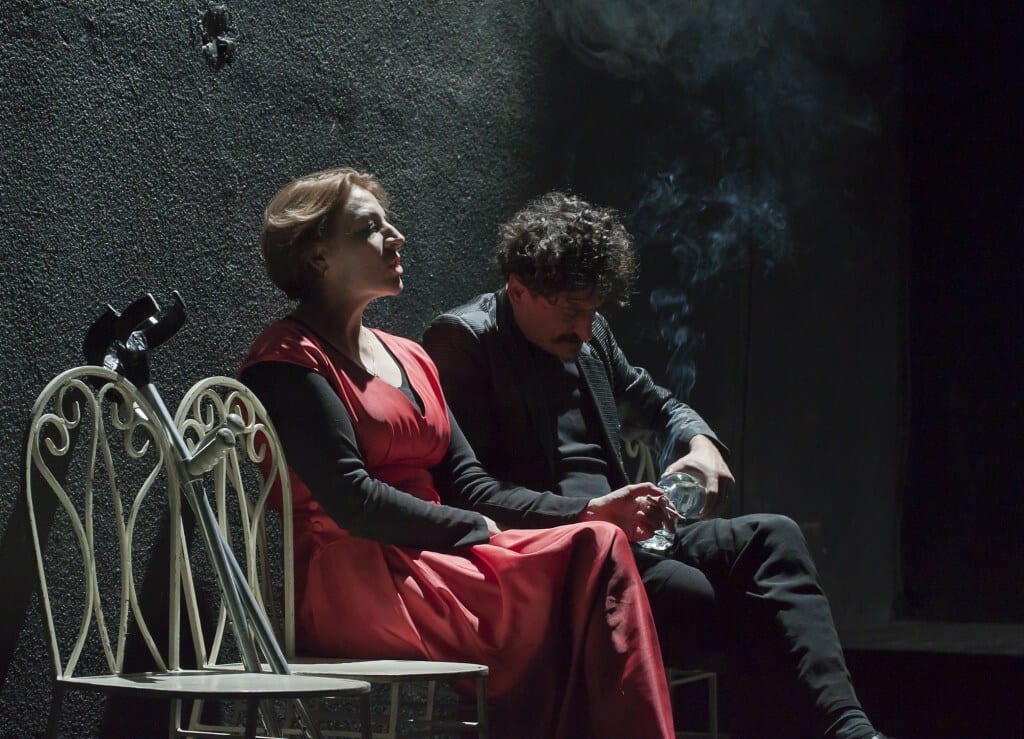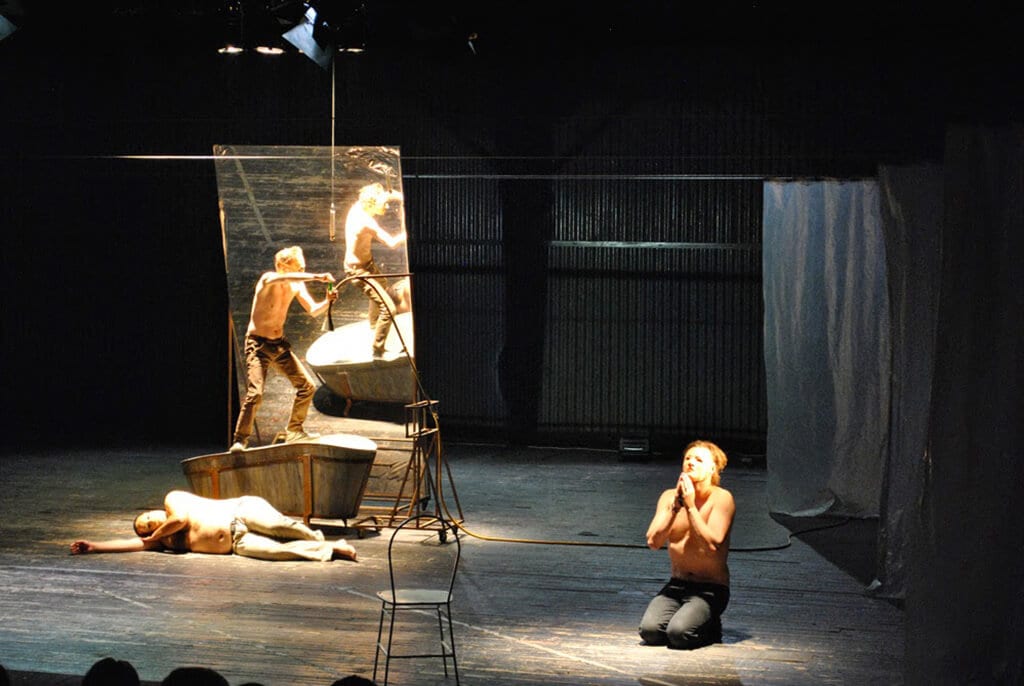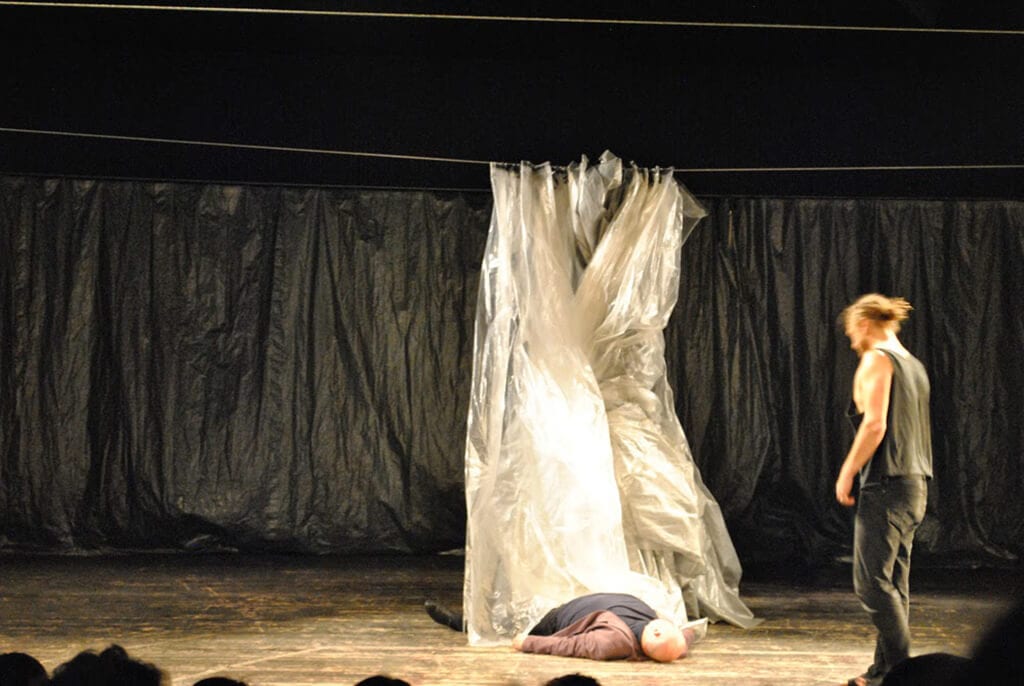This production has an extremely promising opening: in total darkness, two skull-shaped lanterns converse in gravelly, ghostly voices, using the gravediggers’ dialogue from Act 5 rather than the opening lines of the text. However, when the actual ghost appears, he is only a man sitting on the stage, and this intriguing device is never used again. The stage, hung with grey plastic sheeting, is lit with floodlights from the sides and back, creating a somewhat dystopic, urban-industrial setting – it’s an interesting idea, but like most things in this production, doesn’t quite realise its full potential.
Hamlet is one of Shakespeare’s longest plays, with the full text taking about five hours to perform, so it’s common to see directors cut, insert and change scenes to make the play as comprehensible as possible. However, in this production, it feels like some scenes which should be included have been cut, while some of those included should have been cut, meaning that the action of the play is jerky, at times moving too fast and at others too slowly. The characters’ emotions are also oddly expressed – the ghost, for example, exhorts Hamlet to take revenge on Claudius for his murder without once raising his voice, while Polonius is angry, frustrated, at times almost hysterical throughout the production.
The modern clothing doesn’t lend much to the production, although there is an excellent scene in which Ophelia, in the same dress as Gertrude, is clearly a puppet for the adults in the play, as Claudius puts lipstick on her as they wait to spy on Hamlet – a thoughtful touch, as Hamlet later chastises her, and all women, for deceiving men with makeup. Ophelia seems disturbed from the start of the play, nervously twitching her fingers and playing with Laertes’ scarf – Benedek plays her well, but there is perhaps room for deeper characterisation which is not explored. Similarly, Hamlet comes across as a much less complex character than one might expect, his uniform of shaggy hair and black hoody making him seem more of a disgruntled teenager than anything else. This is, of course, a valid angle to take on the character – but in a production that lasts over three hours, this shallow characterisation is questionable.
Overall, the fault in this production is its failure to communicate depth: why the recurring motif of the bathtub? Why are Gertrude and Claudius obsessed with cigarettes? More than once, the action and the dialogue do not quite fit: when Laertes and Hamlet argue at Ophelia’s funeral, Hamlet tells Laertes to ‘take thy fingers from my throat’, but they are still on opposite sides of the stage. The acting in this production is good: Benedek, Albu, Mátray and Pálffy all have their moments, but shallow characterisation and unclear direction take away the ultimate power of the text.



